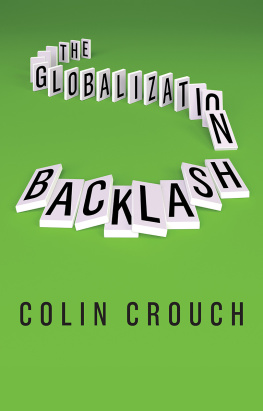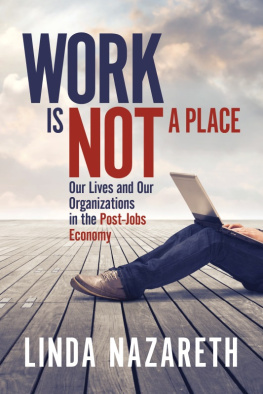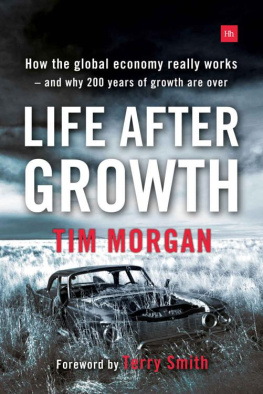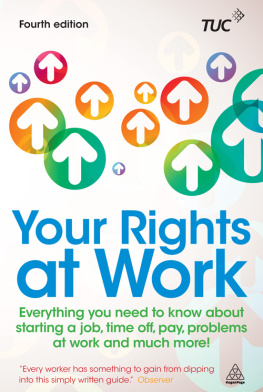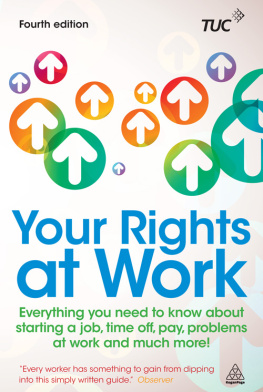
Will the Gig Economy Prevail?
Colin Crouch
polity
The Future of Capitalism series
Steve Keen, Can We Avoid Another Financial Crisis?
Ann Lee, Will Chinas Economy Collapse?
Malcolm Sawyer, Can the Euro be Saved?
Danny Dorling, Do We Need Economic Inequality?
Chuck Collins, Is Inequality in America Irreversible?
Peter Dietsch, Franois Claveau and Clment Fontan, Do Central Banks Serve the People?
Deborah Hargreaves, Are Chief Executives Overpaid?
Josh Ryan-Collins, Why Cant You Afford a Home?
Colin Crouch, Will the Gig Economy Prevail?
Copyright Colin Crouch 2019
The right of Colin Crouch to be identified as Author of this Work has been asserted in accordance with the UK Copyright, Designs and Patents Act 1988.
First published in 2019 by Polity Press
Polity Press
65 Bridge Street
Cambridge CB2 1UR, UK
Polity Press
101 Station Landing
Suite 300
Medford, MA 02155, USA
All rights reserved. Except for the quotation of short passages for the purpose of criticism and review, no part of this publication may be reproduced, stored in a retrieval system or transmitted, in any form or by any means, electronic, mechanical, photocopying, recording or otherwise, without the prior permission of the publisher.
ISBN-13: 978-1-5095-3246-9
A catalogue record for this book is available from the British Library.
The publisher has used its best endeavours to ensure that the URLs for external websites referred to in this book are correct and active at the time of going to press. However, the publisher has no responsibility for the websites and can make no guarantee that a site will remain live or that the content is or will remain appropriate.
Every effort has been made to trace all copyright holders, but if any have been overlooked the publisher will be pleased to include any necessary credits in any subsequent reprint or edition.
For further information on Polity, visit our website: politybooks.com
For Joan
Acknowledgements
I am grateful to Joan Crouch for help with the whole text, and to Mark Freedland for passages of legal interpretation. Neither share responsibility for any defects in the final product.
Abbreviations
ALMPactive labour market policyATAustriaAUAustraliaBEBelgiumCACanadaCEECentral and Eastern EuropeCHSwitzerlandCZCzechiaDEGermanyDKDenmarkELGreeceESSpainFIFinlandFRFranceHUHungaryIEIrelandILIsraelITItalyJAJapanKOKoreaMXMexicoNLNetherlandsNONorwayNZNew ZealandOECDOrganisation for Economic Cooperation and DevelopmentPLPolandPTPortugalSESwedenSKSlovakiaTRTurkeyTWAtemporary work agencyUKUnited KingdomUSUnited States of America
The Rise of Precarious Work
The death in January 2018 of a courier working in southern England for the German logistics firm DPD attracted unwelcome attention to the dark side of what has become known as the gig economy. The courier was not an employee of DPD, but for nineteen years had been a self-employed contractor to the firm. His death had been caused by a deteriorating diabetes condition, for which he had missed several hospital appointments. This followed a day when DPD had fined him 150 because, as a result of attending an appointment, he had failed to deliver his allocation of parcels for the day. In the wake of the furore surrounding his death, DPD changed its policy on workers medical appointments, but deeper questions remain surrounding the idea of workers who are not employees of a firm and for whom the firm accepts no employer responsibilities, but who can be disciplined by that firm. That is the idea at the heart of the gig economy.
The issue is not a marginal one. The gig economy is seen by many neoliberal policy-makers as an ideal form of work, set gradually to replace the costly rigidities of the old-fashioned employment contract. Firms can maximize flexibility by calling on and paying self-employed workers only when they need them to perform specific tasks, avoiding the social insurance charges, minimum wage obligations and the host of other responsibilities that come with so-called standard employment. Workers can enjoy the freedom of being entrepreneurs, working when they like and for whom they like. In a further response to the case of the diabetic courier, DPD offered its couriers a choice. They could become normal employees, with rights to sick pay, paid holidays and a pension, but being paid a lower rate for their deliveries. This gives workers that ultimate prize of the capitalist economy: freedom of choice.
But are workers in economic circumstances so tight that they cannot risk taking time off for a hospital appointment likely to forego ready money now in order to guarantee sick pay and a pension at some future time? More generally, can a person who works full time for one firm be said to have the freedom of the self-employed? And how can a firm that engages thousands of people as couriers not be their employer? The emerging new world of flexible working arrangements is replete with verbal and legal tricks of this kind. Corporations such as the giant taxi firm Uber, which organize their work over the Internet, claim to be mere platforms and therefore outside any employment relationship. If they arrange their affairs skilfully, they can also claim not even to have a geographical location on this planet and therefore choose the fiscally most benign jurisdiction in which to report all their profits. Since the Internet constitutes all that is new and pioneering, anyone who criticizes their practices is accused of standing in the way of progress.
The term gig economy is itself deceptive. It resonates with the shows or gigs organized for entertainers, who perform events at various locations, with no long-term commitment to the places or the groups organizing them. But these entertainers are genuinely self-employed; they are in a true free market, working for several different organizations and dependent on no individual one. This is very different from the situation of people engaged in making deliveries day in, day out, for one or two large corporations on which they are almost totally dependent for making a living, and which may well stipulate their hours of work. The description of this as a gig seems more like a cynical attempt to associate a problematic form of employment with the romance of the entertainment business than a genuine attempt to define a new form of work relationship.
It is even highly doubtful that the gig is as important as its effusive advocates claim (see, for example, Annabel Denhams [2018] The Gig [sic] economy is the future and women can lead the charge). The Brookings Institution estimated that, although gig work was certainly growing fast (between 2010 and 2014, non-employer [i.e., gig] firms offering taxi services in large US cities grew by 69 per cent against 17 per cent among firms with employees), such firms accounted for only 3 per cent of total US business revenue (Hathaway and Muro 2016). Research by the McKinsey Global Institute (2016) claimed that up to 162 million people, or 20 to 30 per cent of the total workforce, across Europe and the US were engaged in independent work. Although McKinsey included the phrase gig economy in their reports title, independent work is a far more extensive category, also covering self-employed persons as normally understood. The figure still seems high, given the general historical decline that has been taking place in self-employment in advanced economies, with only Greece and Spain having proportions like those suggested by McKinsey. There must be some overlap here with the shadow (i.e., illegal) economy, all of whose workers will lack employee status. Also, McKinsey found that about 40 per cent of independent workers were casual that is, not having their work as a major component of their life activities mainly students, retired people and others who would not be counted as part of the total workforce in official statistics. These groups combined could bring us closer to the McKinsey estimate, but students and retired people doing odd jobs do not presage a new age of entrepreneurs liberated from having regular jobs.
Next page

